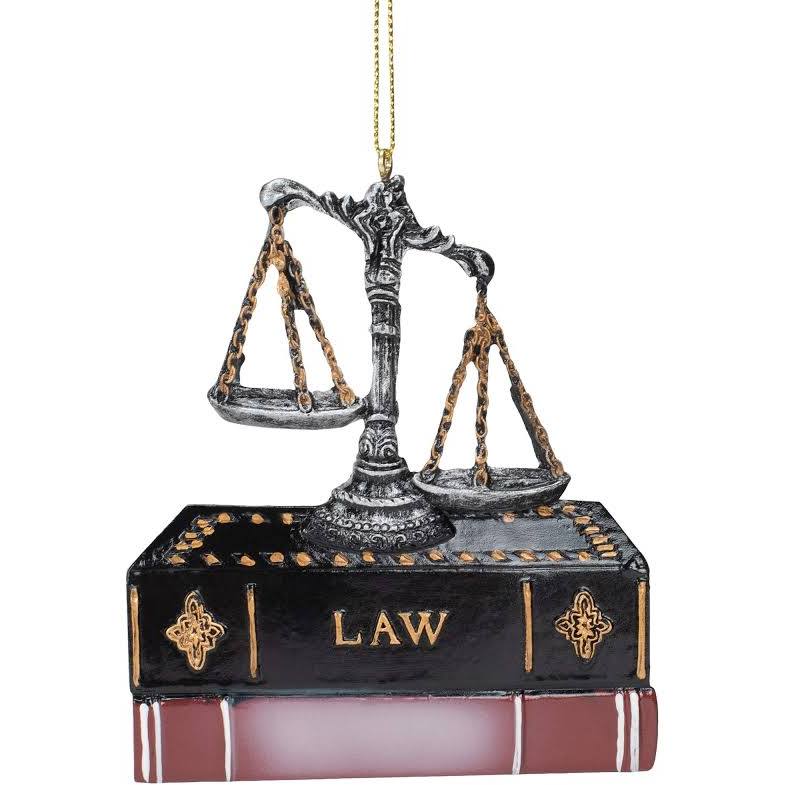
The Oldham County Circuit Court’s June 13 open meetings opinion, J. Albert Harrison v. Oldham County Ethics Commission, should serve as a cautionary tale for the next Attorney General.
https://drive.google.com/file/d/1kHzUyuhEjoAerC5EY6FCpcxcVb_ic9ub/view?…;
Harrison, along with his attorneys, Jeremy Rogers and Suzanne Marino of Louisville's Dinsmore & Shohl, convinced the court to reverse an open meetings decision issued by Cameron's office in September 2022 that would have effectively “eviscerate[d] most of the Open Meetings Act’s operative provisions.”
https://www.ag.ky.gov/Resources/orom/2022/22-OMD-187.pdf
Oldham Circuit Court Judge Jerry Crosby II ruled that the local ethics commission’s failure to observe the requirements for conducting a closed session -- specifically the requirements that it give notice to the public of the statutory basis for a closed session and that it take final action in open session -- violated the open meetings law.
Cameron’s 2022 decision determined that although the ethics commission failed to comply with the open meetings requirements for closed session, the commission’s noncompliance did not violate the open meetings law. His decision ignored over four decades of caselaw and Attorney General decisions.
The decision would have permitted members of a public agency to convene a public meeting, retire to closed session, exit the open meeting without legal explanation — leaving the public to wonder what the members were discussing behind closed doors — and return some time later for the purpose of adjournment, having taken final action in closed session.
The Oldham Circuit Court rejected this affront to forty plus years of precedent, agreeing with Harrison that Cameron’s “overly simplistic interpretation of [the statute] would effectively gut the Open Meetings Act.”
The Franklin Circuit Court last year rejected an equally serious affront to open government in reversing a 2021 Cameron decision that excluded public officials’ electronic communications about public business on their private devices and accounts from the application of the law. Declaring that the emails and texts were not “public records” because they were not “possessed” by the agency the officials served, Cameron’s decision ignored longstanding OAG precedent recognizing, “In the end, it is the nature and purpose of the document, not the place where it is kept, that determines its status as a public record.”
https://dcogc.org/wp-content/uploads/2022/03/Kentucky-opinion-on-text-m…
https://www.ag.ky.gov/Resources/orom/2021/21-ORD-127.pdf
https://law.justia.com/cases/kentucky/court-of-appeals/1999/1998-ca-001…
Add to these Cameron's recent declarations that a discussion of public business by “written communications, such as emails,” between a quorum of the members of a public agency, is not subject to the open meetings law — because “that interpretation lacks textual support from the Act [and] lacks any basis in what the word ‘meeting’ means” — and you have the perfect recipe for secret government sauce.
https://www.ag.ky.gov/Resources/orom/2023-OROM/2023/23-OMD-103.pdf
https://www.ag.ky.gov/Resources/orom/2023-OROM/2023/23-OMD-112.pdf
The Franklin Circuit Court's open records opinion is on appeal. Oral arguments are scheduled in Louisville on August 29.
It remains to be seen whether the Oldham Circuit Court’s open meetings opinion in Harrison's case will be appealed.
It is also unclear what the future holds for Cameron’s recent decisions redefining the term “meeting” and dangerously limiting the scope and application of the open meetings laws.
What is abundantly clear is that in all of these decisions Cameron ignored decades of precedent.
Precedent. This is the lynchpin on which the Oldham Circuit Court’s opinion turns.
And it is what singles it out as a uniquely important open government case.
At long last, Daniel Cameron has been called out by a court for ignoring precedent when it conflicts with his policy preferences.
In reversing the Attorney General’s open meetings decision, and voiding the action illegally taken by the Oldham County Ethics Commission in closed session, Judge Crosby focuses on Cameron’s unexplained departure from an interpretation of a law that “goes back forty plus years with no overt repudiation by the Courts or the legislature as to a different interpretation."
In support of Harrison’s position, attorneys Rogers and Marino cited decades of caselaw and “numerous Attorney General opinions.”
Unlike the Attorney General:
“The Court reviewed every single one. Up until 2018, the Attorney General consistently [interpreted the pertinent statute]. However, with no reference to or discussion of prior Attorney General opinions, the Attorney General in this opinion, basically eradicated forty plus years of precedent regarding the interpretation of this provision, citing to a Kentucky Supreme Court case of Cunningham v. Whalen.”
The court distinguished the Cunningham opinion, explaining why the opinion was not controlling.
(For more on the court's legal analysis in J. Albert Harrison v. Oldham County Ethics Commission, see: https://kyopengov.org/blog/precedent-over-policy-preference-how-oldham-…)
All of this is, in its own right, critical to the survival of Kentucky's open government laws. But in a larger sense, it exposes the fatal flaw in Cameron’s approach to adjudicating open records and open meetings disputes.
His decisions “overturn decades of decisions by both the Attorney General and the Kentucky Courts. What is most troubling is [that he] offers no rationale for this departure especially in light of the fact that no changes were made by the legislature to these provisions” of the open records or meetings laws.
In other words, Judge Crosby agrees with Harrison, Rogers, and Marino, as well as the Kentucky Open Government Coalition, and astute access advocates across the state, that Daniel Cameron wrongly prioritizes policy preference over decades of precedent without legal justification.
Judge Crosby pointedly observes:
"In Commonwealth v. Chestnut, the Kentucky Supreme Court noted that the Attorney General had an obligation to explain why his decision departed from earlier precedent, citing to In re Hughes and Coleman. ("[T]he Attorney General had an obligation to explain why his decision in Chestnut's case was at variance with his prior opinions.") In In re Hughes and Coleman recognized, “that an administrative agency either must conform with its own precedents or explain its departure from them.
“An agency changing its course must supply a reasoned analysis indicating that prior policies and standards are being deliberately changed, not casually ignored, and if an agency glosses over or swerves from prior precedents without discussion, it may cross the line from the tolerably terse to the to the intolerably mute. Consequently, while the agency may reexamine its prior decisions and depart from its precedents, it must explicitly and rationally justify such a change of position.”
Stated simply, the Attorney General -- when deciding open records or meetings disputes between the public and public agencies -- cannot abruptly, and without written justification and explanation, change course. He must adhere to precedent or identify the legal basis for changing course. And a policy preference generally disfavoring the public’s right to know is not a “legal basis.”
As American lawyer, jurist, and Associate Justice of the Supreme Court of the United States Benjamin Cardozo, wrote:
"What has once been settled by a precedent will not be unsettled overnight, for certainty and uniformity are gains not lightly sacrificed. Above all is this true when honest men have shaped their conduct on the faith of the pronouncement."
Cardozo, “The Nature of the Judicial Process” (1921) https://books.google.com/books/about/The_Nature_of_the_Judicial_Process…
Take note, Representative Stevenson and Mr. Coleman. Whoever succeeds Cameron as Attorney General must resist the temptation to elevate her/his policy preference over precedent.
Perhaps Daniel Cameron himself will learn something about the importance of precedent from the recent defeat handed to him by the Oldham Circuit Count.
We have not fought the battle to shine a light on state and local government for nearly fifty years only to have Cameron, or a successor, arbitrarily shut off the light.
